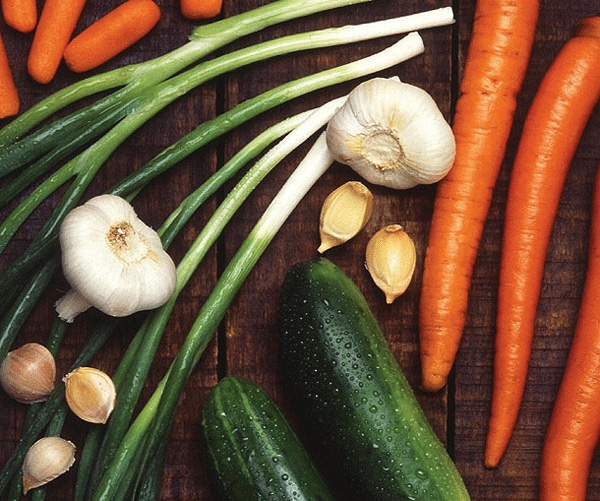January 24, 2011

The very freshest and most delicious fruits, vegetables and other farm products in Virginia are now just a click away.
At VirginiaGrown.com, even city dwellers can reap the rewards of farming as they pick up their weekly market basket at a designated location or have it delivered to their front doors. The concept is called Community Supported Agriculture, or CSA, and it allows consumers to invest in a share of what someone else’s farm produces. Farms across Virginia are now signing up new members for 2011.
As of the first of the year, the Virginia Department of Agriculture and Consumer Services (VDACS) listed 85 CSA options on VirginiaGrown.com but the agency anticipates that it will add more as spring approaches. “We have seen an increase in consumer demand for CSAs the last couple of years,” said Matthew J. Lohr, VDACS Commissioner.
“I think there are several reasons for the increased popularity. Members know where all the food comes from, how it was grown, who harvested it and when. They learn to eat seasonally, enjoying foods that arrive according to nature’s timetable. Everything the CSA provides is field-fresh, flavorful and nutritious because deliveries usually take place weekly, and the travel time and distance from farm to fork are kept to a minimum. But I also think a big part of the appeal is simply variety. Instead of two or three varieties of apples, subscribers may be able to choose from five or six, including some heritage varieties no longer grown on a large commercial scale.”
Because of the wide variety of traditional, specialty, heirloom or even organic crops grown by CSA farmers, members can discover many new products and enjoy interesting new tastes.
Becky Latane of Blenheim Organic Gardens in Westmoreland County gives consumers recipes for the unknown varieties so they’ll know how to prepare them. Many other CSAs distribute recipes and cooking tips to help cooks make the most of their innovative ingredients.
In addition to produce such as squash, cucumbers, spinach, eggplant, sweet corn, watermelon, lettuce, beans, peppers, tomatoes, chives, dill, cilantro, cabbage, collards, kale, oregano, broccoli, arugula, marjoram, chard, beets, peas and potatoes, CSA farms sometimes offer extras such as eggs, cut flowers, plants, cheese, honey and bread. Or they may provide blends such as mixed salad greens or a salsa kit with tomatoes, onions, cilantro, peppers and garlic.
Producers are learning new techniques to extend their seasons and many are collaborating with other farmers to bring a longer growing season and a wider variety of share offerings to their members. These arrangements minimize risk for the farmers and help ensure that members will receive products even if there is a drought or other natural disaster.
Five Points Community Farm Market in Norfolk operates a year-round CSA program with regional produce selections in the winter and spring. Their back-up plan to provide variety and ensure a steady supply of fresh produce is negotiating arrangements with other farms in the event of a disruption with their regular growers. If products come from farms outside of Virginia, they are clearly identified as such.
The Abingdon/Bristol CSA is organized by Frosted Hawk Farm, but when certain varieties are unavailable, Frosted Hawk will purchase those vegetables from neighboring farms that are part of the CSA coalition. All of these local farms use organic methods to grow produce.
Many other CSAs are available at VirigniaGrown.com and VDACS advises consumers to act now to take advantage of all that a CSA offers before subscriptions are sold out. At the Virginia Grown site, consumers should click on Community Supported Farm by Region to find a CSA near them, or they may call VDACS’ Division of Marketing at 804.225.3663. The agency also encourages farms to list on Virginia Grown. They may do so on the website or with a telephone call to Marketing.
Participating in a CSA is a great way for consumers to connect with agriculture, but it is also important for consumers to recognize that, like any other business transaction, they should make sure they clearly understand the terms and conditions that a CSA share offers. Consumers should discuss their expectations with the farmer offering the CSA and understand the risks assumed in the event of drought or other natural disaster or event that can affect agricultural output.
You May Also Like




